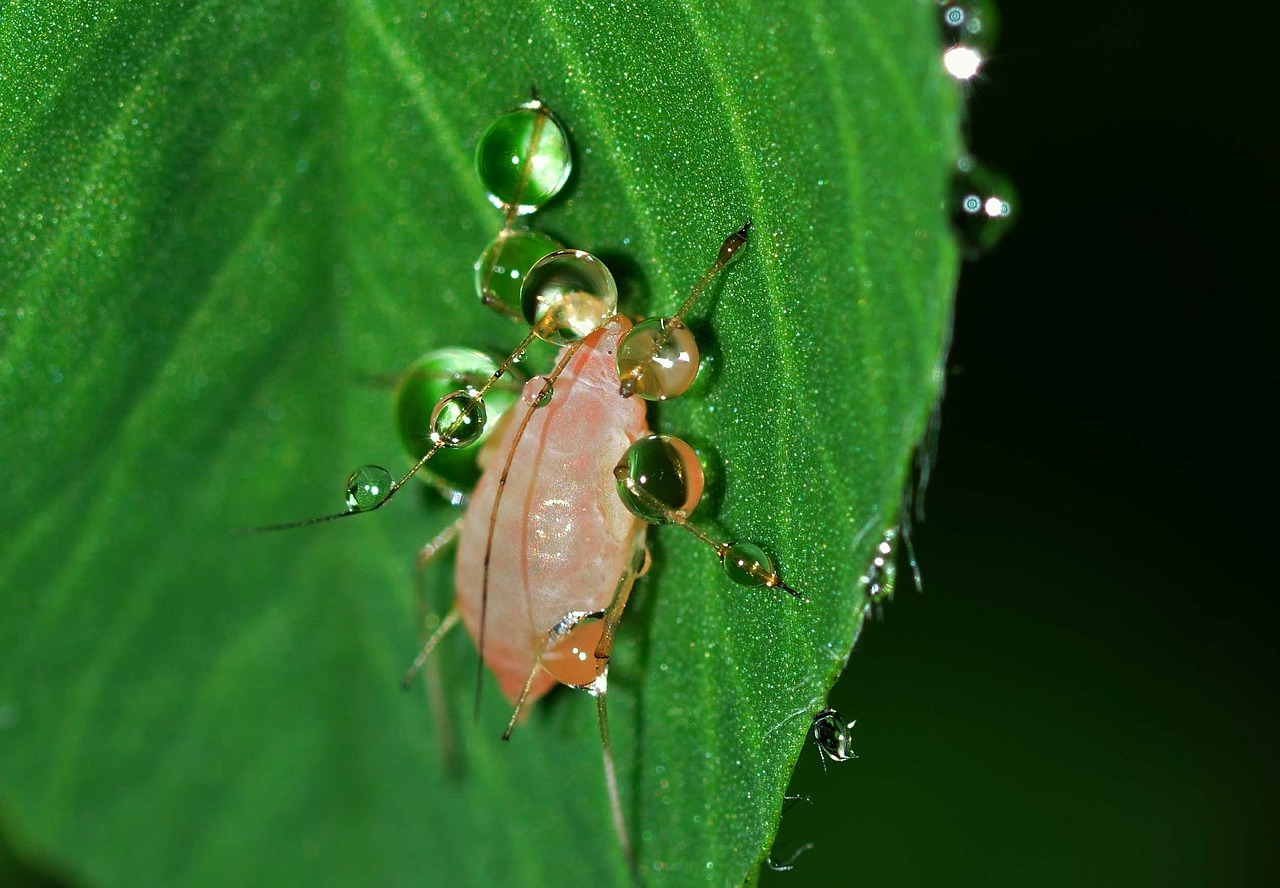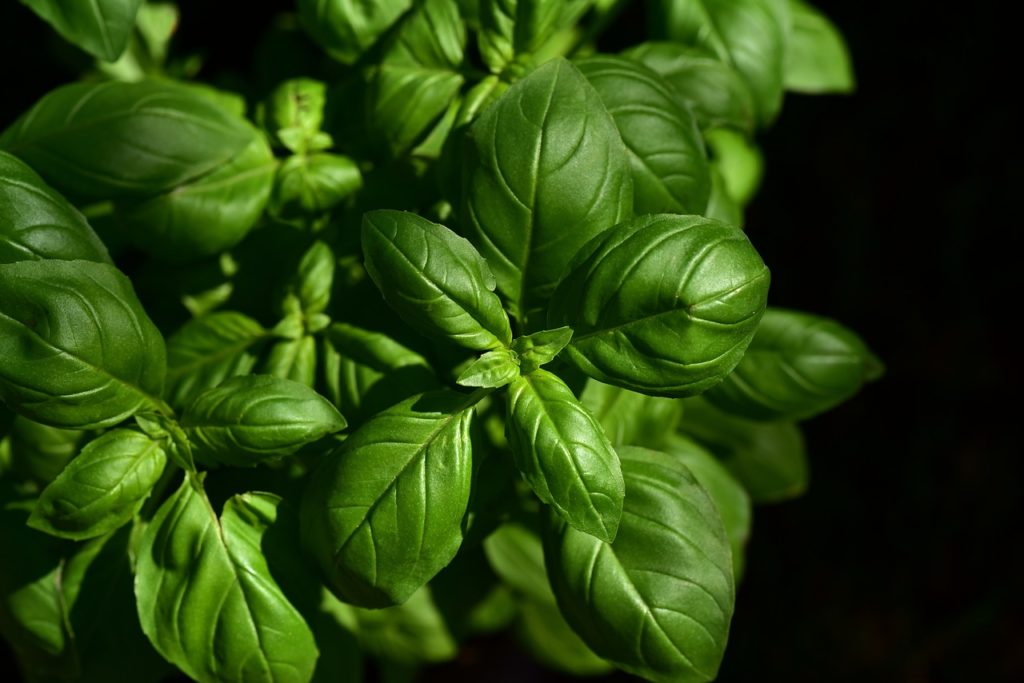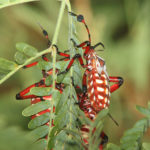
It’s no secret chemical pesticides are bad for the environment. They can also harm your family, friends, and pets. So why not try a more eco-friendly strategy? We’ve got some eco-friendly tips to control outdoor pests in Phoenix.
The “eco-friendliest” practice is prevention. Prevention starts with a healthy yard and garden. Learn the best mowing, watering, and maintenance strategies to sustain a healthy landscape.

Another eco-friendly strategy is to “scout” for pests before trying to get rid of them. That means find and identify the pest, then select a treatment for that specific pest. If you use the wrong treatment, you may end up killing beneficial insects.
“By regular monitoring, we know in advance when pests are likely to occur and we can control them using simple techniques before their populations become too large to manage with simple techniques. Smaller populations of pests can easily be controlled by hand-picking, or using eco-friendly products such as soaps, horticultural oils, botanicals, or even water,” says University of Arizona extension agent Dr. Shaku Nair.
Eco-Friendly Strategies
Plants that repel pests

- Basil: We love this herb in soups, sauces, and salads, but mosquitoes and other bugs hate it. Plant it in pots on decks and patios or in your garden near your tomatoes. Pests are put off by the smell, and the oil in basil can kill mosquito eggs.
- Lemongrass: This herb produces citronella oil. It’s a popular and effective ingredient in mosquito repellents. You can find it in many products including candles, sprays, and lotions. Planting lemongrass in your yard will deter mosquitoes and other small pests.
- Marigolds: These power flowers repel insects with their smell. Plant them near your vegetables to mask the scent.
- Mint: Most pests can’t stand the intense scent of mint. Mint grows and spreads quickly so it’s a good candidate for container gardening.
- Rosemary: This herb is very effective as a mosquito repellent, and it can also keep fleas and ticks away. Boil some in water to make a natural mosquito repellent. You can also toss some springs on your grill at your next backyard bash. The rosemary-scented smoke will repel bugs.
Insecticidal soaps
The beauty of this solution is that these soaps are less toxic to humans, pets, birds, and beneficial insects. The soaps disintegrate the protective waxes of soft-bodied insects like aphids and whiteflies. This causes them to dehydrate and die. You can find insecticidal soap sprays at gardening stores or you can make your own.
Horticultural oils
These oils work by smothering soft-bodied insects and killing them. You might see these labeled as dormant oil, summer oil, or all-season oil. Dormant oil is heavier and you should only use it on dormant plants before the growing season. You can use summer oil on plants with foliage. All-season oil works as a dormant or summer oil. Avoid using horticultural oils when it’s above 80 degrees Fahrenheit to avoid plant damage.
Pest Management
Dr. Nair offers the following tips to help with pest management:
- Keep your plants in good health, with proper irrigation and fertilizers. Healthy plants resist pests so much better! Weak and stressed plants are especially prone to all kinds of pest problems.
- Trim plants to remove excess and crowded branches, and those that are low hanging and touching the ground. This creates spaces and helps when you are looking for pests. Proper and timely pruning is beneficial for landscape plants.
- Remove all fruit from fruit trees/plants before winter to reduce the number of pests being attracted and overwintering in your yard. If your neighbors have fruit trees, you might suggest that they do the same.
- Cleaning debris from near your plants may also help, e.g., any piles of wood or other stored items.
- Keeping weeds under control is also helpful, as many weeds serve as habitats for pests to hide.
- In March-April, look for pest eggs. Some pest eggs are easy to find on undersides of leaves or twigs. Simply remove them from the plant and discard or destroy them.
- Even if you don’t see the eggs, continue monitoring the plants. Sometimes you will see chewed up or discolored leaves or fruit, small puncture holes on the fruit surface. All these indicate pest activity.
- Look for natural enemy activity. There are some egg parasites that lay eggs on the pest eggs. Pest eggs with round exit holes indicate there’s parasite activity. This is a good sign and means some level of natural control is present. Other predatory insects such as praying mantises and green lacewings also prey on the pest.
- Hand-picking is a great way to remove garden pests, especially if you have only a few plants. But this is labor-intensive.
- Instead of hand-picking, shake or sweep the bugs off the plants into a bucket or pan of soapy water. This is easier than hand-picking and also kills them instantly. Many adult pests can fly, so do this in the early morning or late evening when the bugs are slow.
- Depending on the type of pest, use a strong spray of water, or soap solution, horticultural oils or botanicals to remove them from your plants.
Use these strategies to go green in your efforts to help control harmful pests. It may take more time at first, but the environmental benefits are worth it.
Dr. Shaku Nair is an associate extension agent at the Arizona Pest Management Center at the University of Arizona. She also teaches classes on integrated pest management or IPM.





